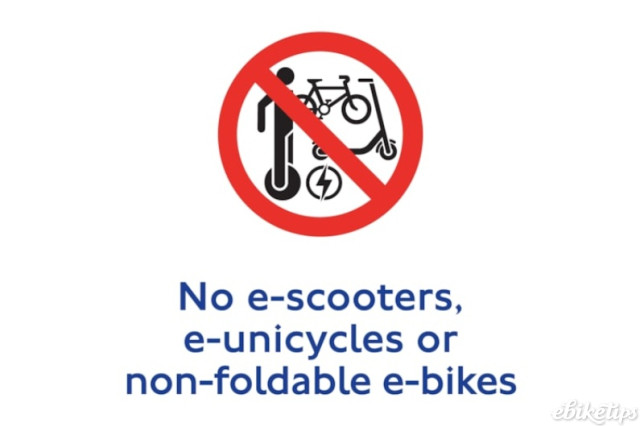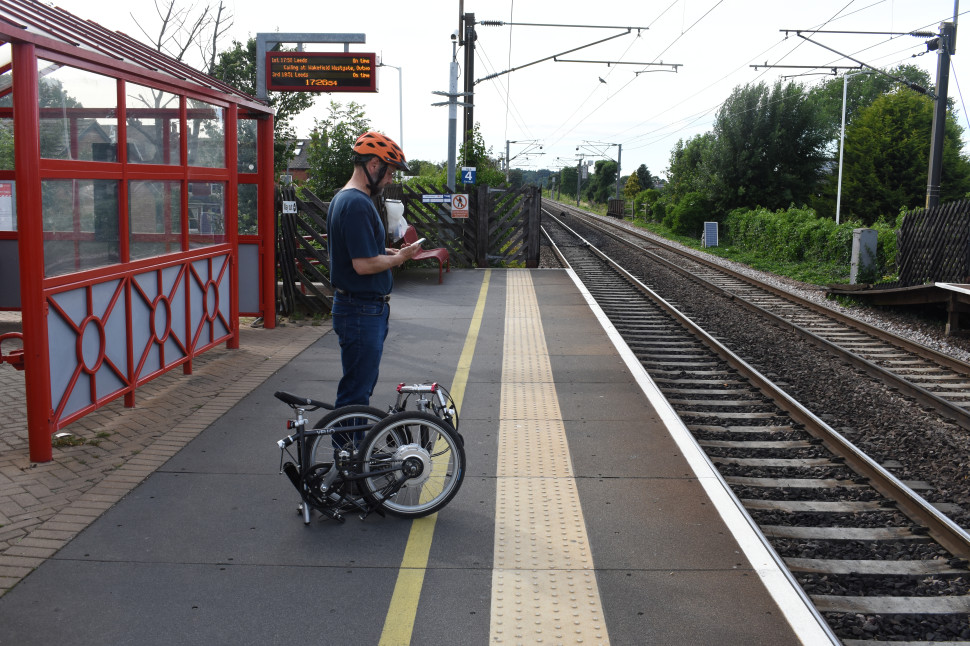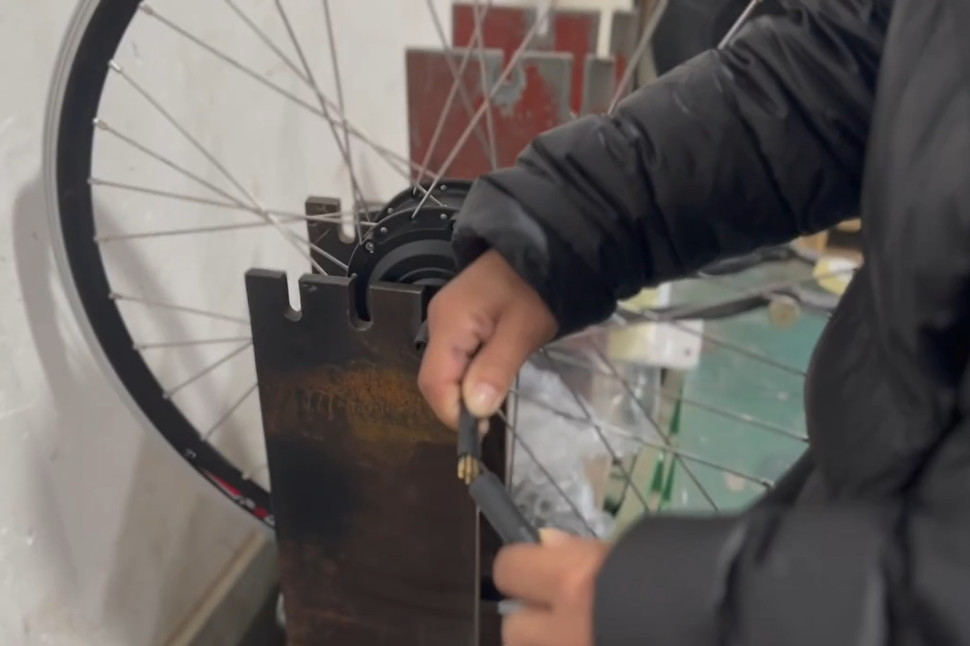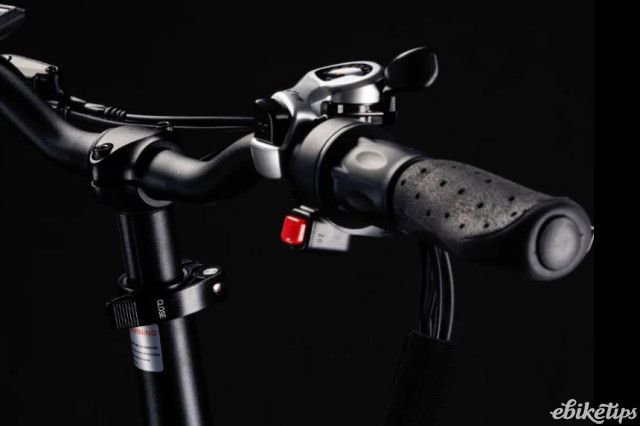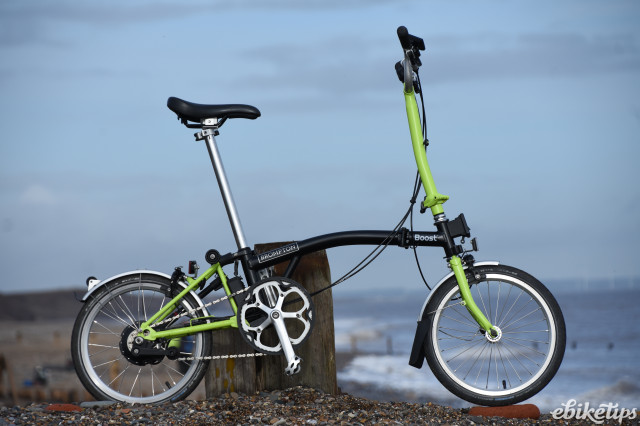Transport for London (TfL) has announced that non-folded e-bikes will be banned on its network from March 31 – a move that has come in the wake of growing union pressure to ban all e-bikes following a fire last month. So what's given rise to this ostensibly bizarre distinction?
TfL imposed an e-scooter ban across its entire public transport network in December 2021 following a number of fires on its premises and services. E-bikes have however still been permitted up until now.
A review of the e-scooter incidents concluded that the fires were caused by defective lithium-ion batteries that ruptured without warning, but TfL’s previous position was that e-bikes didn’t pose the same risk as they are generally subject to better manufacturing standards with batteries positioned in a place where they are less likely to suffer damage.
However, last month an e-bike fire at Rayners Lane station resulted in Aslef, the train drivers’ union, threatening strike action unless TfL banned e-bikes from the London Underground. Two other unions – the RMT and the TSSA – echoed those sentiments and feelings ran sufficiently high that TSSA representatives claimed to have “stormed out” of a meeting earlier this month when TfL refused to implement an immediate ban.
Non-foldable e-bike ban
Commenting on the Rayners Lane fire last week, TfL said that it would await the findings of the London Fire Brigade investigation before taking any decisions. A ban on non-folding e-bikes has now been announced.
“While the majority of e-bikes are safe, there have been a small number of incidents where non-foldable e-bikes have caught fire on the transport system in London,” said a spokesperson.
“To ensure the safety of the network for customers and staff, customers in possession of non-foldable e-bikes will not be permitted to travel on most TfL services, including on the Tube, Overground, Elizabeth line and DLR. The ban includes all non-folding e-bikes, including standard cycles that have been converted to e-bikes using conversion kits.”
The announcement went on to echo a regular point made by the London Fire Brigade that bikes adapted using conversion kits pose a greater fire risk than purpose-built e-bikes, “however, it can be hard to differentiate between modified and un-modified e-bikes. Until improved product safety measures are in place for converted cycles, batteries and chargers, a ban is necessary for all non-folded e-bikes.”
> "Incomplete" e-bike conversion kits mean people are fitting incompatible batteries and chargers
Why the folding distinction?
TfL went on to say that it was “not aware of any reports of foldable e-bike fires in London.”
While the presence or absence of a hinge might seem entirely irrelevant to fire safety, TfL goes on to explain that, “there are fewer opportunities for foldable cycles to be converted into e-bikes using conversion kits, due to their specific shape, size and mechanical constraints.”
DIY conversions therefore seem the specific target of what has ended up a far broader policy.
Reaction
Responding to the news, Volt co-founder James Metcalfe was keen to emphasise that point that the real danger isn’t linked to whether or not an e-bike folds or not, but to how the bike has been manufactured.
“We use the same batteries for both our folding and non-folding e-bikes,” he pointed out. “The public needs to be made more aware of the potential dangers associated with buying from non-reputable brands, and regulatory enforcement needs to become simpler.
“A national database for legal e-bikes could help tackle this problem, and ensure that only safe, high-quality e-bikes are being ridden.
"If TfL and the government are serious about promoting sustainable transport, then we need policies that encourage cycling by connecting it with public transport, rather than deterring people from it."
Lesley Rudd, chief executive of Electrical Safety First, added that the e-bike industry could be set for future blanket restrictions if, “substandard versions of e-bikes, their batteries, chargers and conversion kits coming onto the market” are not regulated.
“Whilst reputable manufacturers produce high quality products that meet safety standards, more needs to be done to address the risk posed by substandard versions of these devices that are often linked to serious incidents.
“It’s vital the Product Regulation and Metrology Bill tackles this issue head on and mandates third-party certification for these products, to ensure only safe batteries and e-bikes can be sold on the UK market. Converted e-bikes can also pose a risk if they are made up of substandard or incompatible components, and converted incorrectly, which is why we are also calling for new safety standards to be introduced for these kits, to better tackle the issue.
“Our proposals will better protect consumers, protect the reputable sector who already make safe devices, and help to weed out bad operators producing and selling dangerous substandard batteries.”
> Are e-bike batteries safe? What’s the difference between a safe battery and a fire risk?
